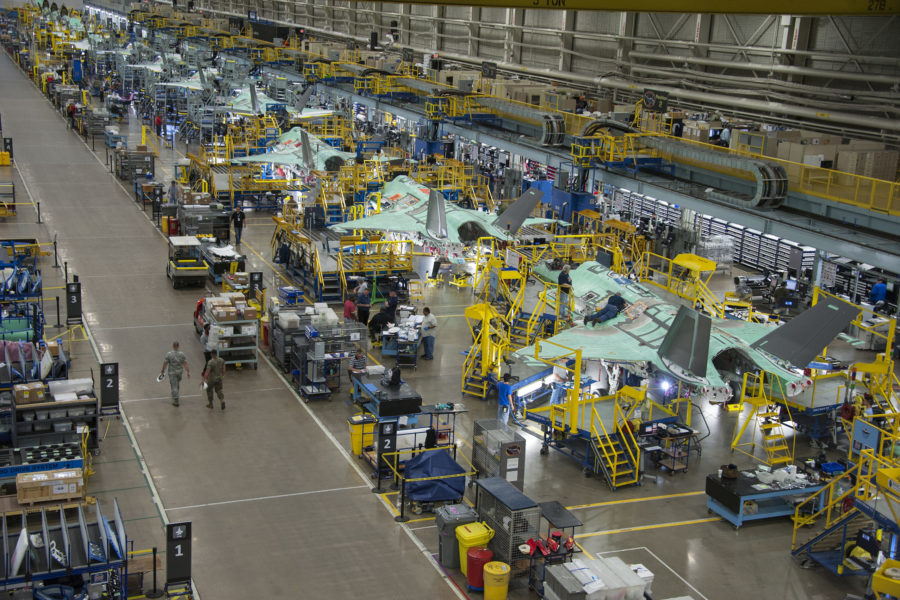Deliveries of new F-35 fighters have resumed after halting in September following the discovery that a Chinese-sourced material was used in building the aircraft. The resumption of deliveries, ordered by Pentagon acquisition chief William A. LaPlante, went into effect Oct. 8 and extends through delivery of Lot 14, or about the next 126 of the fighters. However, parts without the Chinese material will be installed on F-35s as early as November.
The part involved was a magnet in a turbomachinery element supplied to F-35 builder Lockheed Martin by Honeywell. It contained a magnet made of cobalt and samarium, an alloy sourced from China, prohibited under acquisition regulations. The Pentagon previously said the part is incapable of transmitting any data about the F-35, nor does it endanger aircraft already delivered with the alloy. Aircraft already delivered will not have to have their magnets replaced.
The turbomachine “integrates the functionality of an auxiliary power unit [APU] and an air cycle machine into a single piece of equipment,” Lockheed Martin said when the improperly-sourced material came to light.
When the part acts as an APU “it provides electrical power for ground maintenance, main engine start, and emergency power. It also provides compressed air for the thermal management system during ground maintenance,” the company said.
Through a spokesperson, LaPlante said he had signed a National Security Waiver “that allows DoD to accept Lot 13 and Lot 14 F-35 aircraft containing non-compliant specialty metals” in the Honeywell mechanism.
Acceptance of F-35s is necessary due to “national security interests,” LaPlante said, and the waiver applies to “a total of 126 F-35 aircraft awaiting delivery or to be delivered under the Lot 12-14 production contract.” The last airplane under the Lot 12-14 buy is to be delivered by Oct. 31, 2023.
Despite the lack of danger, the DOD decided in September to stop accepting the airplanes because of a possible violation of the DFAR, the Defense Federal Acquisition Regulation that prohibits parts critical for major weapon systems to be sourced from potentially hostile nations. LaPlante’s waiver clears that potential hurdle. He telegraphed the move in a Sept. 9 discussion with reporters.
Lockheed Martin, in an Oct. 8 statement, reiterated that the magnet “does not provide any visibility or access to sensitive program information” and poses no safety of flight issue. Honeywell has identified a different source for the material, and the new vendor’s alloy will be installed on aircraft beginning next month.
During the delivery pause, 18 airplanes were held up, and Lockheed Martin expects they will have their DD-250 official acceptance forms signed this week.
“Prior to the pause, we had delivered 88 aircraft of our scheduled 148-153 F-35s to be delivered in 2022,” the company said.
The company noted that it manages a supplier base of more than 1,700 contractors, “with an annual domestic economic impact of approximately $72 billion.” The company said it’s “committed to supplier standards and contractual requirements” in delivering the F-35.
Government sources said they did not expect the situation to interfere with contracts in the Lot 15-17 acquisition of F-35s.
Coincidentally, the first—and only—cobalt mine in the U.S. opened Oct. 7 near Salmon, Idaho. Operated by the Jervois Global company, based in Australia, the new entirely underground mine is near an abandoned open-pit cobalt mine which has not produced in decades. Assembled dignitaries at the opening said the mine would create an American source for cobalt, necessary for a wide variety of applications, such as electric car batteries.
